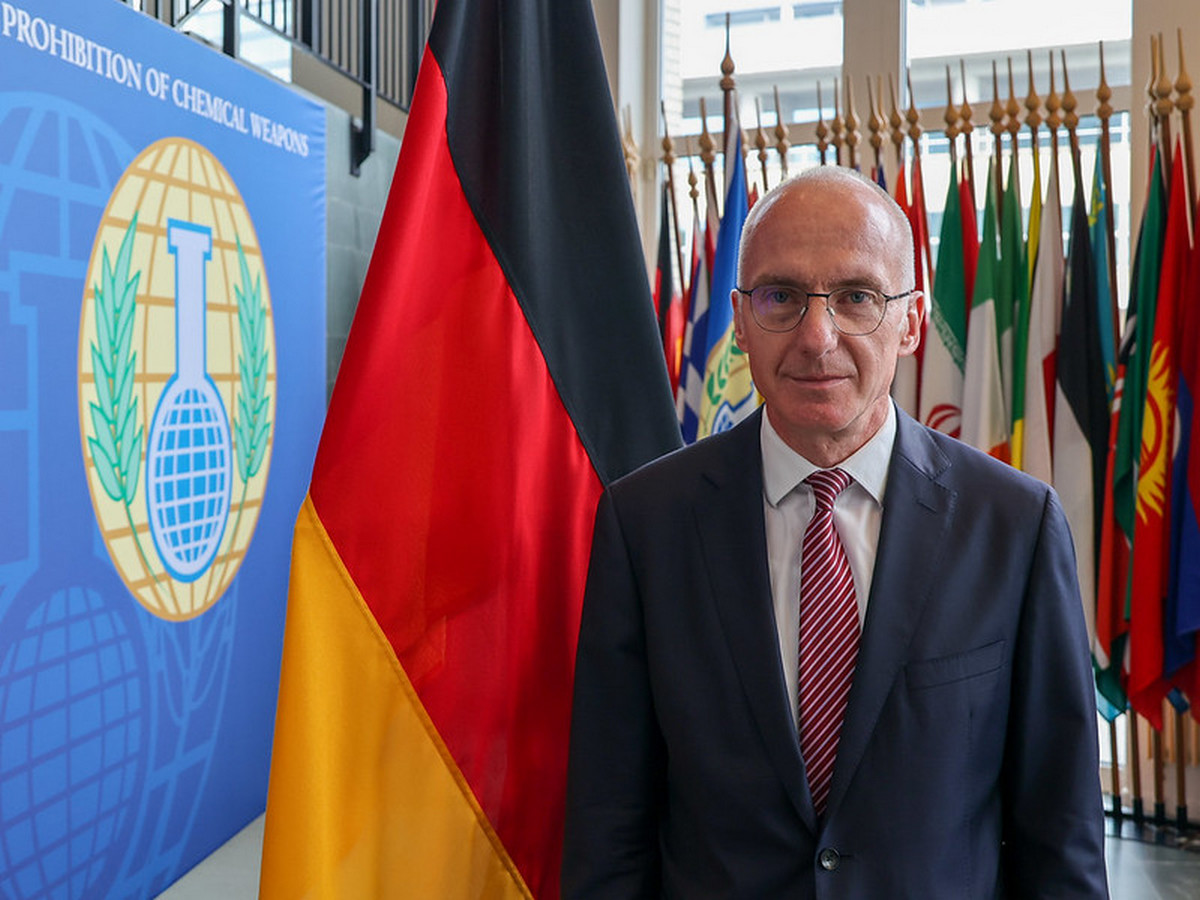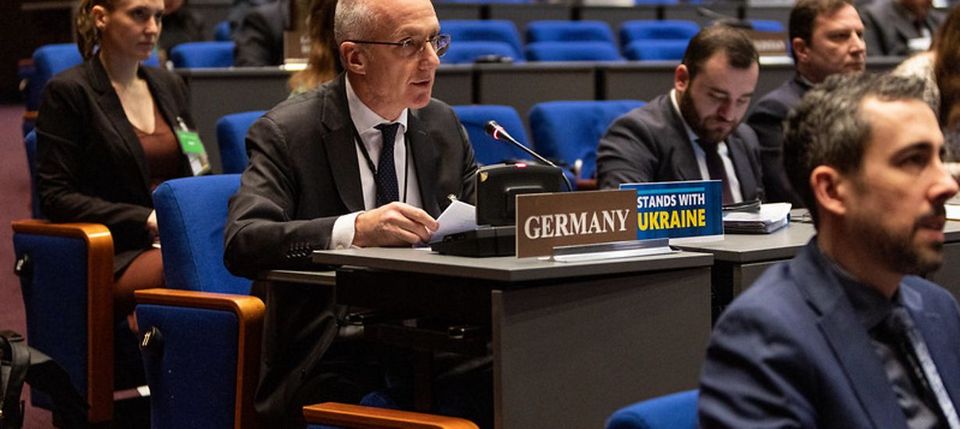Directly from the Organisation for the Prohibition of Chemical Weapons in The Hague, Netherlands, we received a postcard from Thomas Schieb, former ambassador of the Federal Republic of Germany to Serbia. H.E. Mr Schieb, who now serves as a Permanent Representative of Germany to the OPCW, shared with us his memories from his period of living in Serbia.

What have you been doing since you left Belgrade?
Leaving Belgrade on 30 July 2022, I drove straight up to The Hague in the Netherlands, where I started working, at the beginning of August, as a Permanent Representative of Germany to the Organization for the Prohibition of Chemical Weapons (OPCW). With its 193 Member States, the OPCW is the implementing body for the Chemical Weapons Convention (CWC), overseeing the global endeavour of eliminating all chemical weapons. It has been quite successful as 99 percent of the chemical weapons stockpiles declared by possessor States Parties have been verifiably destroyed. The OPCW was awarded the Nobel Peace Prize 2013 for “its extensive efforts to eliminate chemical weapons”.
The OPCW will continue to play an important role in the future – to ensure that no State Parties retain undeclared CW weapon programmes; prevent terrorists from getting hold of certain precursors that would enable them to build and use chemical weapons; help State Parties to implement the CWC – i.e. to have the necessary legislation and capacities in place; and, last but not least, to inspect the chemical industry to make sure that all activities are in accordance with the CWC. Recently, I was honored to witness the inauguration of a new group of OPCW inspectors, including two inspectors from Serbia (see photo).
Currently, the OPCW has a number of very difficult issues on its agenda. Among other things, Syria is refusing to cooperate with the OPCW, irrespective of many open questions regarding the production and use of chemical weapons in the past, and Russia is conducting a disinformation campaign against Ukraine, accusing it of preparing the use of chemical weapons without ever presenting any evidence.

My new home, The Hague – the international city of peace and justice – is a very pleasant city with beautiful architecture, a rich history, and wonderful museums, and it’s also home to the Nederlands Danse Theater (which regularly performs at BDF!). It is close to the sea, and you can reach everything by bicycle. And we have started discovering the many touristic highlights to be found all over this beautiful country.
What (and who) do you miss the most from Serbia?
Well, it goes without saying that I still miss many of my Serbian interlocutors, partners, and friends, as well as many of my former colleagues.
Being Germany’s Ambassador to Serbia, your most important mission is to help bring Serbia closer to the European Union. That’s not an easy job – explaining the intricacies of EU integration, fighting misconceptions, prejudices, and disinformation, advocating for EU membership and showing that it’s definitely worth being a member of this club – even if it takes a lot of hard work. Having completed my tenure after four years, it was time to move on. However, I can’t help missing it.
Four years is quite a long time. We travelled a lot in Serbia and in the region and it was a wonderful experience. I miss the great Serbian hospitality, the almost Mediterranean vibes of Belgrade in summer, the Friday evening concerts of the wonderful Belgrade Philharmonic Orchestra, and the many cultural festivals … Luckily, Serbia isn’t so far from the Netherlands – I’m already looking forward to spending a long weekend in Belgrade next spring.